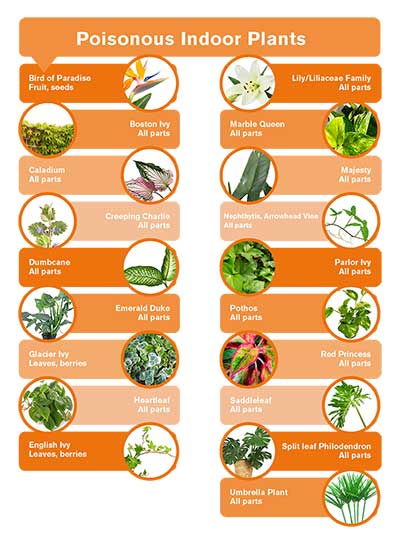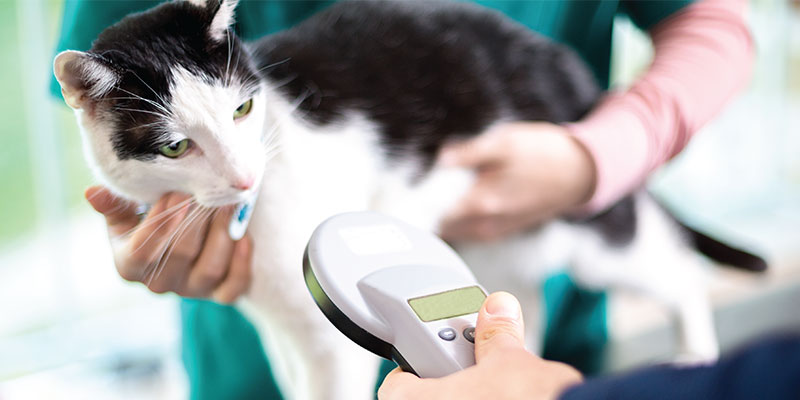FAQ
In Kidney Disease (renal failure) in cats and dogs, a large amount of kidney function can be lost before your pet shows any outward signs, and before even a blood test is able to pick it up. Once kidney function has been lost, it cannot be replaced – it is gone forever. The earlier that we can detect kidney disease, the earlier that we are able to act to protect the kidney function that remains and hopefully give your pet a longer and healthier life.
Traditional kidney blood tests rely upon creatinine increasing. Creatinine only starts to increase when 75% of kidney function has been lost – that means that effectively only half of one kidney is still working when it is first possible to find the disease using creatinine!!!!!
SDMA is a biomarker that we can test that allows us to find kidney disease earlier. SDMA increases when 40% of kidney function has been lost – so much earlier than creatinine. At this stage we have more kidney to protect and hopefully more success with our treatment.
For the month of November, we are able to offer SDMA and creatinine testing for just $10 (usual price $50) when blood is taken during a consultation. If your pet is due for vaccination or you have other concerns, why not ask if testing for SDMA would be appropriate for your animal?
- Worm twice, ten to fourteen days apart, to stop the cycle of worm infestation.
- Feed puppy/kitten food for the first year of life.
- Neuter/Spey at six months old.
- Microchip pups at 3 months
- Vaccinate twice at eight and twelve weeks of age.
- Socialise with humans as soon as possible, dogs after vaccination.
- Register dogs with council at three months old.
Excess drinking, more than 100mls per kilogram of bodyweight, may be the beginning of a number of internal problems. These range from diabetes, kidney failure to liver disease. Blood tests are the best way to find out about these problems.
Sometimes pets with good, clean teethe may eat something that gives them bad breath. Compare this to people who eat garlic and their breath smells the next day. However, it may also mean there are bad teeth, gingivitis or other mouth disease.
An examination by a veterinarian is recommended which may include blood tests.
Although worms may cause this it is far more likely that the anal glands are blocked.
Occasionally, it may be that the glands have abscessed or a growth is present. These smelly glands are located right on the anus and are emptied when the dog passes a motion. If affected, they are very sensitive and irritate the dog. Your vet can rectify this problem easily.
This is a painful condition of a joint, or joints, on a cat or dog. Sometimes hereditary, it can also be caused through over use, overweight, trauma or just plan wear and tear. There are several good methods of treatment, depending on the cause and the affected joints, although a cure is not always possible. X rays help decide the severity and the treatment of the condition.
Without doubt, the most common cause of lameness in cats is the result of a bite from fighting. These bites quickly turn into abscesses and need drainage and antibiotics. Cats do suffer from arthritis but not as often as dogs.
Both cats and dogs have diseases which, in the past, have killed large numbers of pets. We don’t have the big outbreaks of cat flu and distemper, hepatitis or parvo of yesteryear because of the high proportion of pets that are now vaccinated. However, these diseases do still kill our pets. The logical thing is to vaccinate as recommended by your veterinarian. Dogs are vaccinated against distemper, hepatitis, parvo and kennel cough. Cats are vaccinated against feline enteritis (cat flu) and snuffles. Other vaccines such as leptospirosis, FIV and leukaemia are available.
Cats and dogs both have worms. These can only breed in animals but do occasionally affect people. Dogs have four types of worms (round, hook, whip and tapeworm). It is important to wash your hands between handling pets and eating food, especially if you have a puppy or kitten. These are the most likely to be carrying worms. The wormer you use should treat all worm types for each animal type. Fleas and feeding rabbit or hare meat are among the common ways pets get tapeworms.
There are many specialty feeds for pets. Each is made for a specific purpose ranging from diseases such as arthritis or kidney failure to weight loss or growth in young animals. Puppy or kitten foods have all the ingredients needed for growth. Bone growth and extra energy requirements are all provided including calcium and other minerals, in the correct proportions, to ensure strong bone development. In the past, rickets was a large problem in puppies and kittens. With the development of correctly proportioned foods, we rarely see this calcium deficient disease.
Do not pet or approach strange dogs, especially if they are tied up!
If threatened “make like a tree”, stand still, avoid eye contact.
If attacked, place something between you and the dog such as clothing, a newspaper, a bag, put it in the dogs face so it will grab this rather than you.
Advice
Places to go
Shirley Veterinary Centre
- Monday- Friday 8am – 7pm
- Saturday & Sunday 9am – 3pm
Outside of these hours
The After Hours Veterinary Clinic
- 90 Disraeli St Phone
- 03 366 1052
Signs to worry about
- Fitting
- Trying, unsuccessfully, to urinate
- Not able to stand
- Bloated abdomen, groaning
- Hit by car, especially if not using a leg, gums are very pale, not standing
- Bleeding
- Puppies with vomiting and diarrhoea
- Bitch, or queen, not having pups/kittens after pushing for an hour
This is not a complete list, please ring for advice.
Because we now travel in cars, with our dogs, a few problems have arisen.
The first, and most serious, is the effect of a hot day, on a dog, in a hot car. It does not take long for a car, in full sunlight, with the windows closed, to get so hot that a dog may get heat stress and die. Unfortunately, this does occur every year, in New Zealand. When parking your car, with your dog inside, put the car in the shade. Have all the windows down enough so cool air can circulate across the car. Leave water in the car if possible. You can buy metal slides that go in the car windows that allow the air flow but prevent people from accessing your car. Consider leaving your dog at home on hot days.
A number of dogs get over excited in the car. Barking, constant movement, head out the window and even jumping into the driver’s lap all occur.
Talk to or hire a dog trainer to help solve these problems. A dog seat belt, to restrain your dog to the middle of the back seat, is a good start.
If you require more information, please contact us.
There are several places to adopt pets from
SPCA
- The SPCA will adopt out cats and dogs. These are usually de sexed, wormed and de flead.
SPCA Phone 03 349 7057 or for emergencies 03 366 3886
CHRISTCHURCH POUND
- The Christchurch Pound has dogs for adoption at times.
Phone 03 941 6886
CATS PROTECTION LEAGUE
- The Cats Protection League has cats for adoption.
GREYHOUNDS AS PETS (GAP)
- Greyhounds can be adopted from
Greyhounds as Pets (GAP)
Susan Sinclair Phone 03 327 0009 or 021 1922911
National Office Phone 04 528 0460 or 027 4474765
HOUNDS FOR HOMES
- Hounds for Homes
Easter can be an exciting time for both adults and children. While we prepare for Easter, it is essential to keep an eye on potential dangers for your furry friend.
Chocolate
Chocolate contains both caffeine and theobromine (a chemical compound found in the cacao plant) which can be fatal to our pets. It is important to keep chocolate out of reach this Easter. If you are hiding chocolate eggs, keep your pets in a safe location away from the hunt and keep a record of where you have hidden the eggs.
If you do suspect your pet may have eaten some chocolate, call us straight away as symptoms can take up to three hours to show.
Some symptoms to look out for include:
- Vomiting,
- Diarrhoea,
- Increased urination,
- Restlessness,
- Hyperactivity,
- Twitching,
- And in severe cases, seizures.
Hot cross buns
Hot cross buns are another treat to keep out of range of our furry friends. Some hot cross buns contain chocolate which, can be fatal to our pets. They can also contain raisins. Raisins, grapes, sultanas and currants have been shown to cause acute kidney failure in dogs. The exact reason is still not identified; therefore, we cannot determine how much is toxic or which pets are going to be affected. Some pets can eat a few grapes with no ill effects, whereas others may become severely ill with the same amount.
It is always better to be on the safe side, if you do suspect your pet has eaten any, please call us straight away.
Initial signs can include:
- Vomiting,
- Or diarrhoea.
Noises and crowds
New visitors, noises and smells can sometimes cause anxiety for your pet. To help minimise your pet’s stress;
- Create a calm, quiet spot for your pet away from the noise.
- Exercise your pet before any guests arrive.
Decorations
Small and cute Easter decorations could become choking hazards for your pet, or, if broken, can cause cuts to their mouths. Ensure all decorations are out of your pet’s reach or too big for them to fit in their mouths. If your pet has swallowed or eaten any decorations, please call our team.
Flowers
Some flowers are toxic to our pets, if you are decorating with flowers or receive them as gifts, place them in a location your pet can’t get to. Some flowers and plants to look out for include:


If your pet has nibbled on any of your flowers, please take a photo of the flower and call our team.
For more Easter tips, please call 03 385 6156 or book an appointment online! We hope you enjoy a lovely long weekend.
Is chocolate bad for your pet?
With Easter around the corner, it is important to know what hazards can exist for our pets. Chocolate may seem like an unassuming treat, but even a small amount of chocolate could be fatal to your pet.
Chocolate contains both caffeine and theobromine (a chemical compound found in the cacao plant). These ingredients can affect our pet’s nervous system and heart muscles, which can lead to devastating and potentially fatal outcomes.
Prevention is best, keep your chocolate stash hidden away from pets and any family/friends you don’t want to share with. If you are cooking with chocolate, keep your pet’s clear of the kitchen area.
How do I know if my pet has eaten some chocolate?
If you do suspect your pet may have eaten some chocolate, call us straight away as symptoms can take up to three hours to show.
Some symptoms to look out for include:
- Vomiting
- Diarrhoea
- Increased urination
- Restlessness
- Hyperactivity
- Twitching
- And in severe cases, seizures.
If you have any more questions, please contact our team on 03 385 6156.
Whether you are going on a holiday or just a road trip, it is important to make sure your pet is comfortable.
Here are our top tips on travelling with your pet:
- Plan your journey.
Plan where and how often you are going to stop. For dogs especially, you want to plan out toilet breaks. - Start small.
Before going on a long journey, start with smaller car trips. This will get your pet used to the sounds and movements of the car. - Bring the essentials.
Pack travelling essentials like a water bowl, freshwater and poo bags. You can never be too sure what supplies will be available on your journey, so it is always good to be prepared. - Seek vet advise.
Just like us, some pets can suffer from motion sickness. If required, our vets will be able to prescribe appropriate medication to make your pet’s trip a lot more pleasant. - Vaccinations.
Make sure your pet is up to date with their vaccinations. If you are unsure, talk to our team. - Check microchip details.
Are your details correct on your pet’s microchip? Our team can scan your pet and check which details are registered against their chip. - Make sure your pet is buckled in.
For your pet’s safety and yours, it is important they are secured or housed in an appropriate area of your vehicle.
Talk to our team for more information on how to travel safely with your pet and don’t forget to send us some pictures of your pet’s on holiday!

What are microchips?
Microchips are a small device about the size of a grain of rice. The microchip is implanted in the scruff of the neck. The microchip has a unique number that can be read by a special reader, similar to a barcode reader. The microchip does not include a GPS (Global Positioning System).
Implanting a microchip is a common procedure and safe for your animal. Animals should be microchipped by a vet or someone experienced in the procedure to ensure the microchip is implanted correctly.
Benefits of microchips!
Microchips are a unique, permanent identifier of your pet, unlike collars and tags which can be lost, or removed.
While all dogs are legally required to be microchipped (and registered with your local council), we encourage you to microchip all of your pets, as only microchipped pets can be added to the companion animal register.
Registration of your microchipped pet means that you have peace of mind that if your pet is lost or missing, over 850 approved agents nationwide can scan your animal, search the register and immediately contact you to reunite you with your pet.

